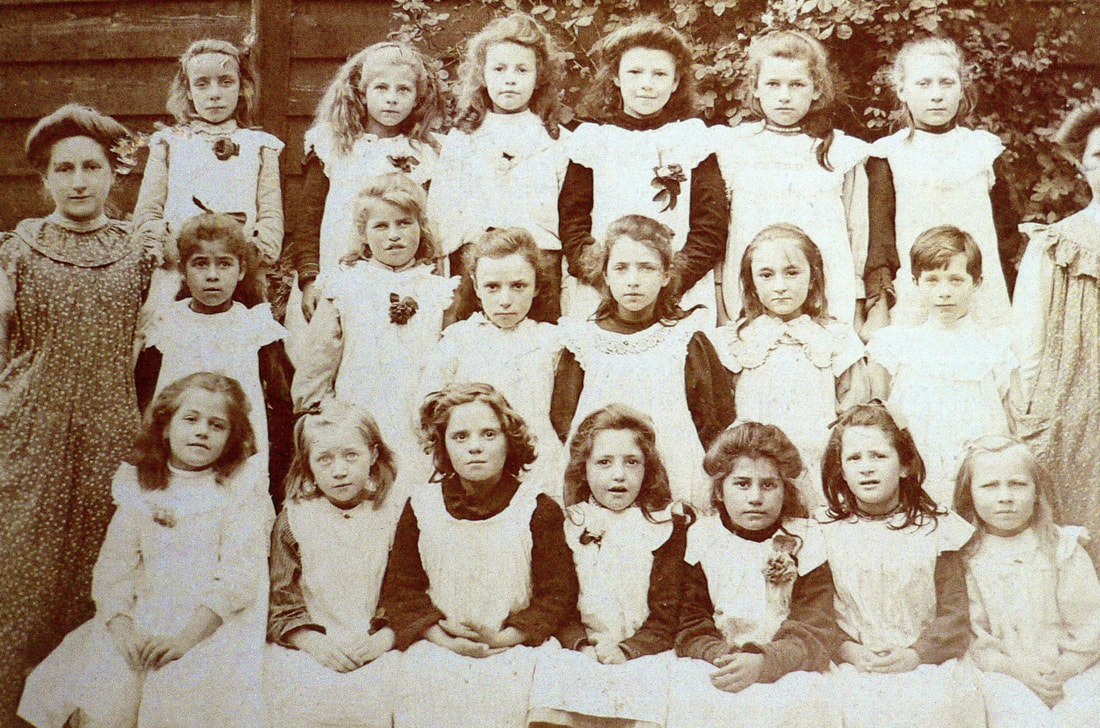Barkway School Memories
Barkway school memories from 1930s onwards; notes from an oral history interview with Geoff Whitby, recorded in 2007.
Barkway School. In the Infants we had Miss Parker. We started at 5 years of age, in my case in 1933. The middle class was Miss Hurry and Miss Lambert. Top class was Mr Williams, Headmaster. I liked school; Miss Parker was strict but good. If we did a drawing or painting that she liked we got a sweet, which we were encouraged to save. Miss Parker sold stamps for National Savings Certificates, but times were hard, in my case if I had 3 pence she would put a line across and the next 3 pence I would get a 6 penny stamp and with 30 6 penny stamps I would get a 15 shilling certificate.
We were taught the 3Rs and were taken to church at times and vicar Rev. Webb - Bowen would visit the school regularly. The middle class was separated by a curtain from the top class. We were first taught by Miss Hurry and then by Miss Lambert. The top class was taught by Mr Williams who was quite strict and gave the cane with some force. One boy, who received a good caning, glared at the headmaster who said to the boy “It’s no good you giving me the evil eye, I’ve got a heart of stone”, but he maintained discipline.
The Union Flag used to fly on Empire Day from the school flagpole. We were told the sun never sets on the British Empire and shown the map British Red covering all our lands. By this time the Second World War was on, and evacuees had arrived with extra teachers. Trenches were dug in the field behind the school. We did a little digging for victory; there was the school garden in the vicarage. I remember Godfrey Pledger in his Tiger Moth airplane flying sideways between two oak trees when we were in the school gardens. His mother was headmistress before Williams. Between 11 and 14 I worked part time as a grocer’s boy with Mr Wilson, the shop next to the chapel which sold almost everything and made deliveries in and around Barkway. One of my jobs was to fill oil cans with paraffin for lighting, heating, and cooking. There were many houses without electricity in those days.
